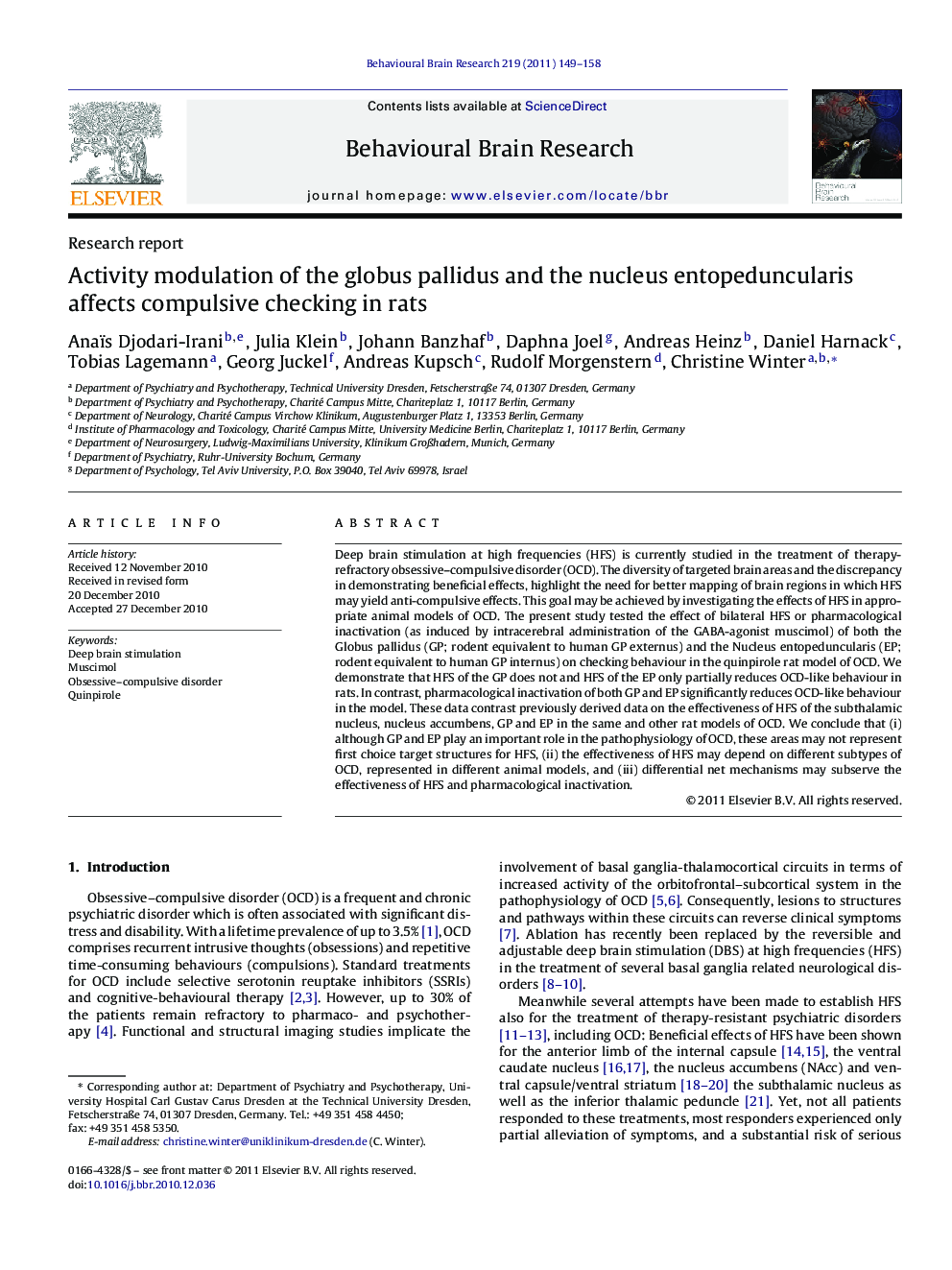| Article ID | Journal | Published Year | Pages | File Type |
|---|---|---|---|---|
| 6259868 | Behavioural Brain Research | 2011 | 10 Pages |
Deep brain stimulation at high frequencies (HFS) is currently studied in the treatment of therapy-refractory obsessive-compulsive disorder (OCD). The diversity of targeted brain areas and the discrepancy in demonstrating beneficial effects, highlight the need for better mapping of brain regions in which HFS may yield anti-compulsive effects. This goal may be achieved by investigating the effects of HFS in appropriate animal models of OCD. The present study tested the effect of bilateral HFS or pharmacological inactivation (as induced by intracerebral administration of the GABA-agonist muscimol) of both the Globus pallidus (GP; rodent equivalent to human GP externus) and the Nucleus entopeduncularis (EP; rodent equivalent to human GP internus) on checking behaviour in the quinpirole rat model of OCD. We demonstrate that HFS of the GP does not and HFS of the EP only partially reduces OCD-like behaviour in rats. In contrast, pharmacological inactivation of both GP and EP significantly reduces OCD-like behaviour in the model. These data contrast previously derived data on the effectiveness of HFS of the subthalamic nucleus, nucleus accumbens, GP and EP in the same and other rat models of OCD. We conclude that (i) although GP and EP play an important role in the pathophysiology of OCD, these areas may not represent first choice target structures for HFS, (ii) the effectiveness of HFS may depend on different subtypes of OCD, represented in different animal models, and (iii) differential net mechanisms may subserve the effectiveness of HFS and pharmacological inactivation.
Research highlightsⶠWe studied the effect of GP- and EP-HFS in quinpirole rat model of OCD. ⶠWe studied the effect of GP-/EP-pharmacological inactivation in same scenario. ⶠHFS of GP does not, HFS of EP only partially reduces OCD-like behaviour in rats. ⶠPharmacological inactivation of GP/EP significantly reduces OCD-like behaviour. ⶠGP/EP may not be first-choice target for HFS, effectiveness depends on OCD-subtype.
